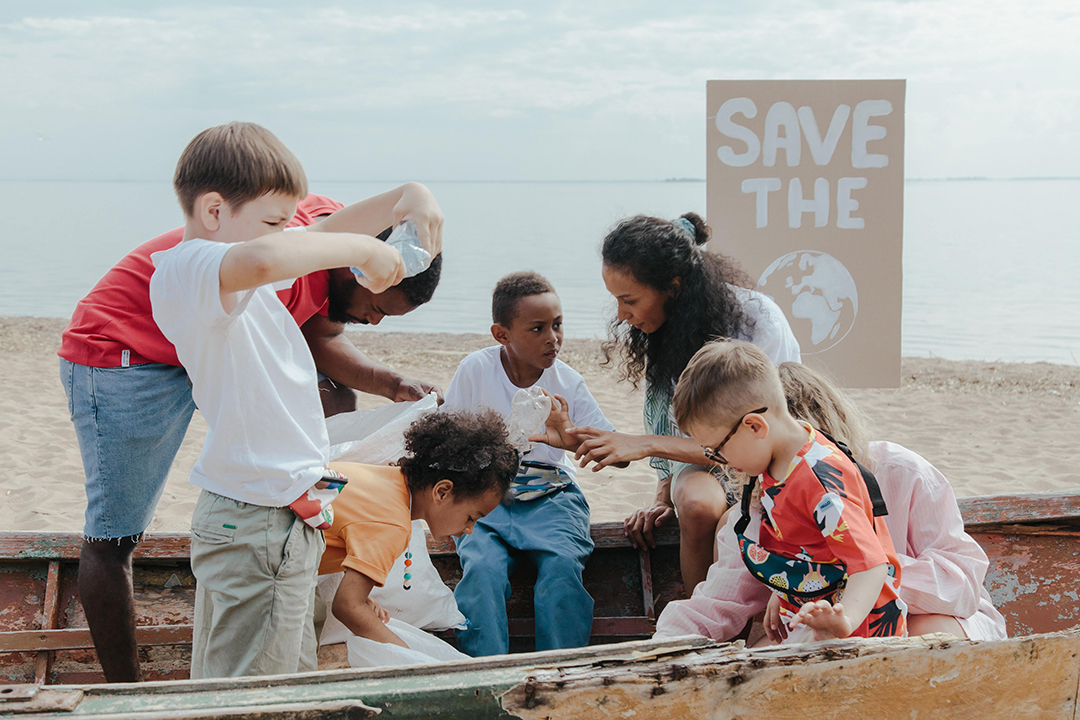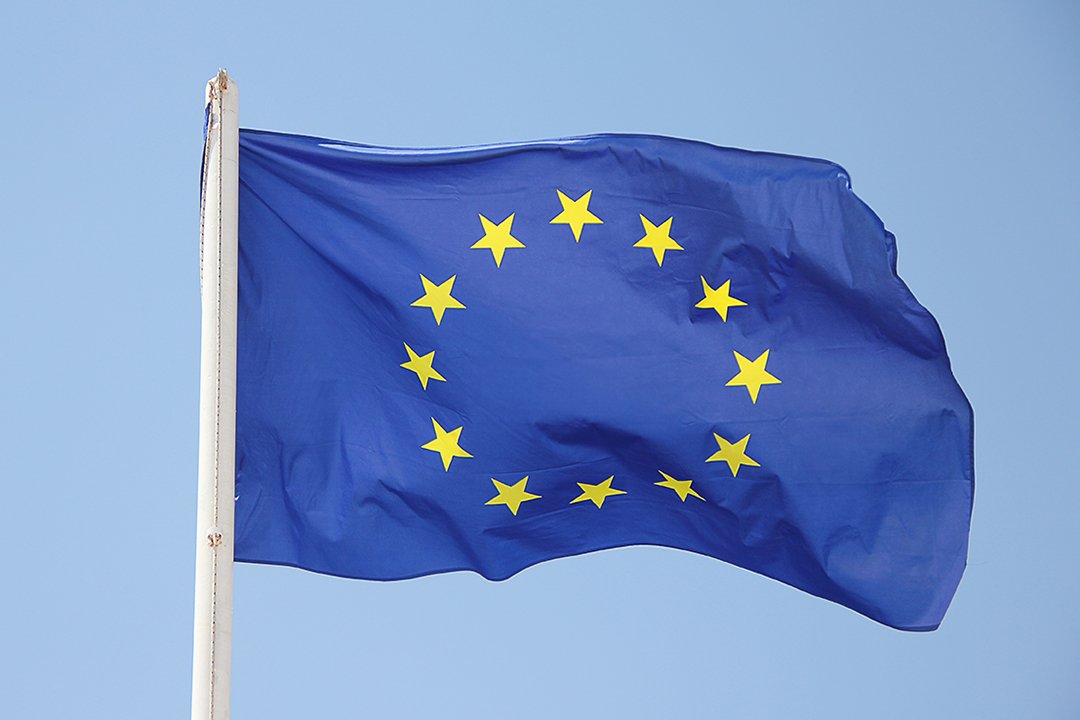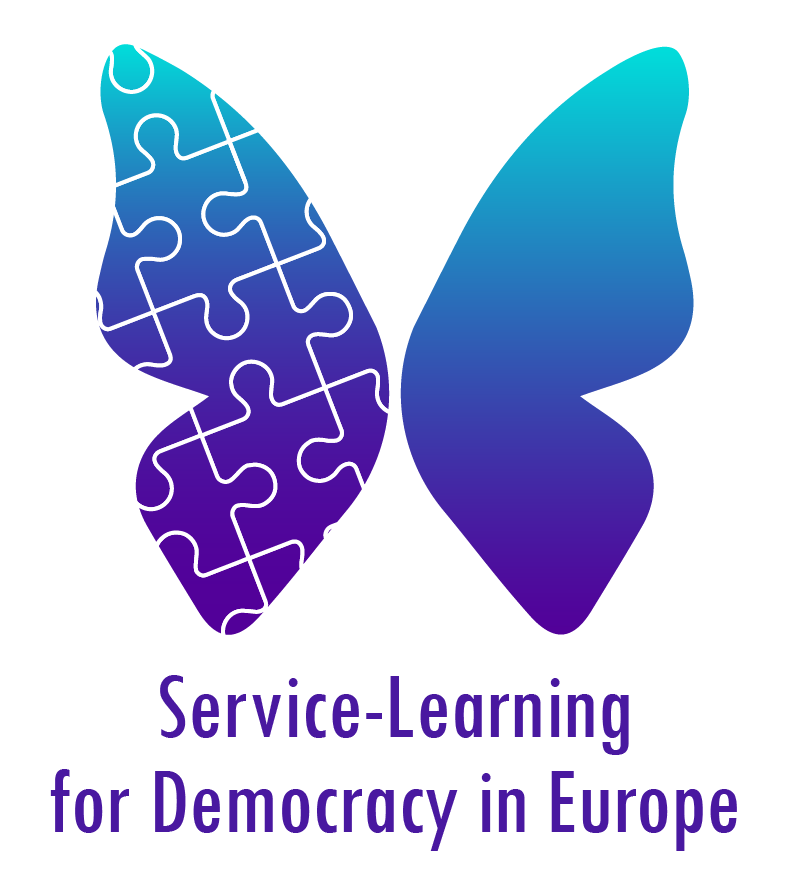
What is Service-Learning?
Service-Learning is a form of teaching and learning that combines civic engagement with subject-specific learning. It enables a modern culture of learning in which pupils and young people actively experience democracy and consciously reflect on it by means of their own creative contribution. Service-Learning is based in part on the ideas of the American philosopher and educationalist John Dewey.
Service-Learning allows a democratic teaching and school culture to be filled with life. Teachers of all subjects and types of schools can focus on strengthening the social and democratic competences of pupils and young people of all ages, regardless of their previous experiences. Service-Learning is not an extracurricular activity for some committed pupils, rather it is an element of teaching and learning for everybody.

Examples:
1. In foreign language classes, pupils deal with poetry and politics with the causes and effects of the war in Ukraine, AND together with a local aid organisation, they become involved with refugees. Together with the refugees they create a “Peace Path”, an exhibition along the town park with poems on the subject of peace from the Ukraine and other European countries.
2. In biology, pupils address environmental pollution. They see reducing plastic waste in their city as the most important problem. Together with the local conservation initiative they start a campaign and call for the use of reusable coffee cups. But what is the situation like in other countries? Assisted by their teacher, they make contact with a school in Catalonia and encourage the pupils there to also start a conservation project. These pupils clean up the local beach and discover where the plastic waste comes from. In class, the Spanish and German pupils investigate the major environmental problems in their countries and discuss their projects with each other. They plan to visit each other when the projects have been completed.
3. In philosophy, students deal with “appearance and reality” in art with photography, and they transfer this onto social media. They design an exhibition of photos that depict the “apparent reality” of Instagram and make this accessible to the community in the local town hall. On its digital channels, the school invites pupils and teachers worldwide to participate.
These insights into the practice at schools demonstrate in how many ways Service-Learning can be organised. What is common to all examples is that young people become involved democratically in two aspects: in class and in society. In the context of a democratic learning culture at school, the pupils plan and shape their engagement themselves, reflect in class about its progress, discuss problems and work out proposals for solutions. At the same time, they put their knowledge and their competences into practice directly, by becoming active – together with engagement partners – in social, ecological, cultural or political questions that interest them (service). Their engagement is part of the course and is deliberately coupled with topics from the syllabus and curriculum (learning).
The combination of civic engagement and subject-specific learning reflects the two central topics of Service-Learning:
-
- Changing school and the culture of learning: Pupils are involved, learning is action-oriented, makes sense and is social;
- Strengthening democracy and society: Pupils are introduced to civic engagement and acquire social and democratic competences.
So that these two goals can be attained, and the development of the young people’s competences really strengthened, the quality of the pedagogical execution is crucial. Service-Learning does not strengthen democratic competence per se. This is evidenced not only by academic results, but also by experiences and feedback from schools. For this reason, six quality standards have been developed.
All the quality standards contain pedagogical challenges which – to differing degrees in different types of schools – call familiar things into question, require teachers and pupils to reflect on their attitudes and roles, and demand new paths for everybody involved, in particular as regards the furthering of democratic competences.
The six quality standards of Service-Learning (Seifert, Zentner, Nagy 2012):
- Real demand: The pupils‘ engagement is a response to a real demand in the district, the community or society. In the course of this engagement they take on tasks that are regarded as meaningful and significant by everybody involved.
- Connection to the curriculum: Service-Learning is part of the course and the engagement is linked to teaching content.
- Reflection: Reflection on the pupils‘ experiences is consciously planned and takes place regularly.
- Participation: The pupils are actively involved in the planning, preparation and organisation of Service-Learning.
- Engagement outside the school: The pupils’ practical engagement takes place outside the school and together with engagement partners.
- Recognition and appreciation: The pupils’ engagement and achievements are honoured by feedback throughout the entire process and at an appreciative conclusion.

Service-Learning and Democracy Competences
Recent years have shown how vulnerable European democratic societies are. Anti-democratic movements are challenging democratic structures and cultures. The relevance of civic education and the acquisition of democratic competences is also portrayed by the development of sophisticated frameworks and models for democratic competences, most notably the Reference Framework of Competences for Democratic Culture (RFCDC) by the Council of Europe (CoE), which was published in 2018.
The RFCDC recommends Service-Learning as a method for the acquisition of democratic competences. In the accompanying guideline of the RFCDC (page 37) it states: “Service-Learning is also an effective way to develop the full range of CDC because it gives learners opportunities to connect the knowledge and critical understanding and skills acquired in a classroom setting with meaningful action targeting a real-world issue.” However, many teachers struggle to transfer such theoretical concepts into their lessons. This is because there is a missing link between theory and educational practice. On the basis of the RFCDC, Mauz and Gloe (2019) thus offered an adapted democratic competences model for Service-Learning practitioners in Germany.
Service-Learning offers a unique opportunity to engage young people in their community and society: formal civic education becomes experience-based and young people get in contact with civil society actors. Due to the fact that almost all youth attend a school as part of their formal education, Service-Learning´s strong advantage compared to non-formal education is that every student, regardless of their background, can participate in civic engagement. Democratic competences are needed in every political context. Unfortunately, the potential of Service-Learning for the acquisition of democratic competences is not only rarely used in general, but especially on the European level of democracy. Apart from few opportunities, there are no European trainings on Service-Learning and programs for transnational European Service-Learning projects.
SLEAD contributes to better democratic competences, which are especially needed on the European level of democracy (e.g., ambiguity tolerance, knowledge about the political situation in other countries, knowledge on the EU). This project equips teachers with practical guidance for competence-based teaching.

